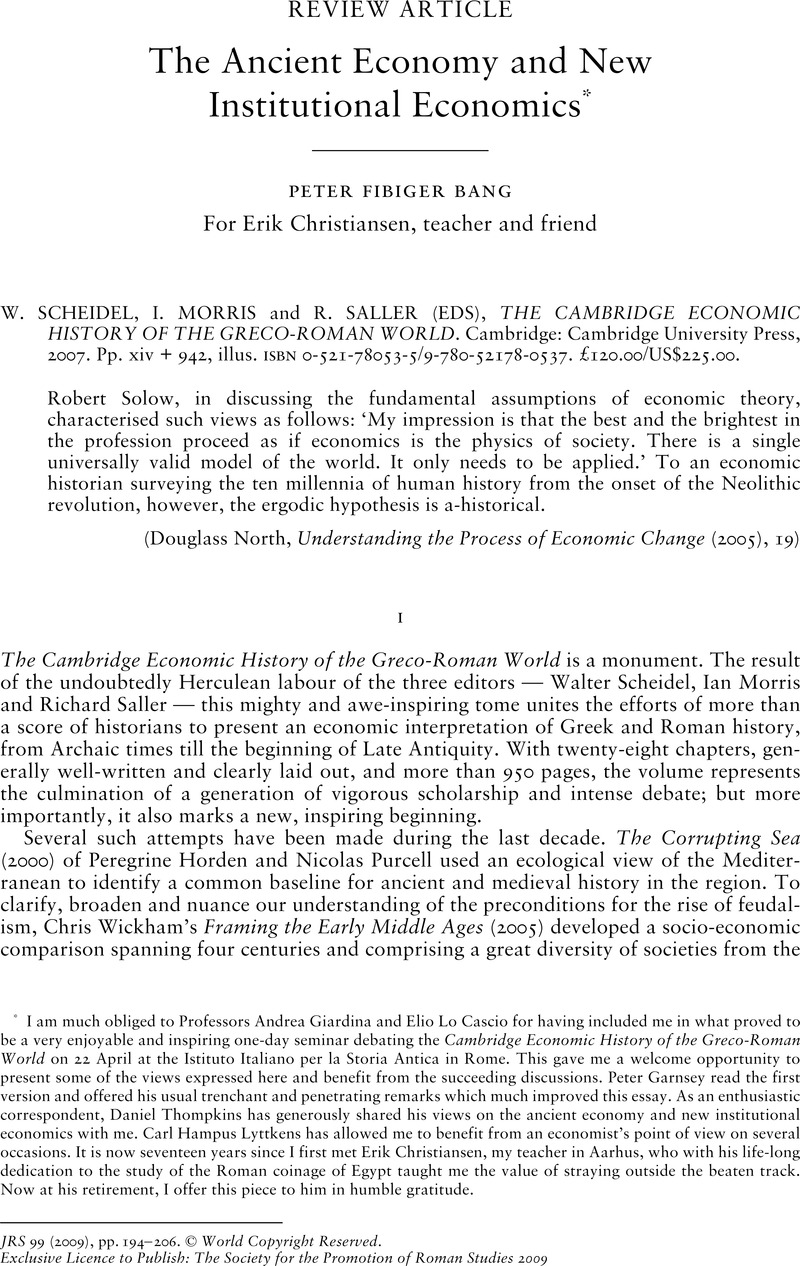Published online by Cambridge University Press: 08 March 2010

* I am much obliged to Professors Andrea Giardina and Elio Lo Cascio for having included me in what proved to be a very enjoyable and inspiring one-day seminar debating the Cambridge Economic History of the Greco-Roman World on 22 April at the Istituto Italiano per la Storia Antica in Rome. This gave me a welcome opportunity to present some of the views expressed here and benefit from the succeeding discussions. Peter Garnsey read the first version and offered his usual trenchant and penetrating remarks which much improved this essay. As an enthusiastic correspondent, Daniel Thompkins has generously shared his views on the ancient economy and new institutional economics with me. Carl Hampus Lyttkens has allowed me to benefit from an economist's point of view on several occasions. It is now seventeen years since I first met Erik Christiansen, my teacher in Aarhus, who with his life-long dedication to the study of the Roman coinage of Egypt taught me the value of straying outside the beaten track. Now at his retirement, I offer this piece to him in humble gratitude.